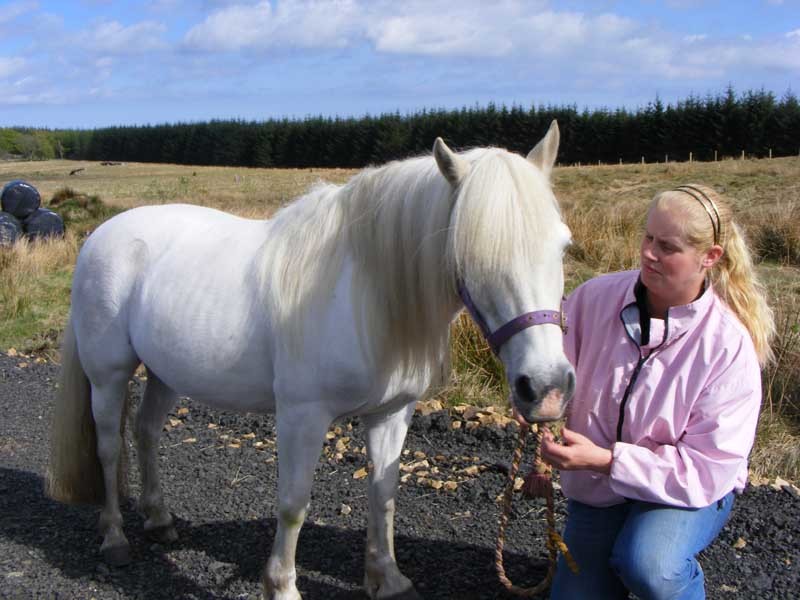Police have raised concerns after a spate of incidents when horses’ manes have been plaited.
A horse in Kelty was targeted four times in 16 days, prompting police to say thieves may be braiding manes to help them identify horses they can steal when they return at night.
Police and animal health experts are urging horse owners to sign up to Horsewatch, a scheme launched in Fife to help keep equestrian crime at bay.
Inglis Veterinary Hospital, a 24-hour practice in Dunfermline, is responding to horse theft fears with a special microchipping initiative that would help to identify stolen horses.
Inglis client Sam Condie (31), who lives in Kelty and keeps three horses in the area, called the practice to report that her new pony, Sugar, which she had bought for her six-year-old daughter, had had its mane braided.
Since then, the same thing has happened to the horse on four occasions within 16 days.
“I am really worried about it,” she said. “I’ve no idea why this is being done to Sugar, though I’ve heard all the theories.” Within hours of the first incident, Inglis’ equine vet Anne Logan had Sugar microchipped and Ms Condie urged other owners to do likewise.
“If a horse is stolen it is the one sure way by which it can be identified,” she added.
“Hopefully it will put thieves off. I would urge anyone who finds a plait in their horse’s mane to get the animal microchipped.”
As well as getting Sugar microchipped, Ms Condie has had padlocks, surveillance cameras and floodlighting installed.AnxiousShe said, “What I am particularly anxious about is that I have no idea how Sugar was being treated while this was being done.
“Were they gentle or rough with her? Did they feed her to win her over? I just don’t know.
“However, Sugar is a very attractive pony. She’s small, cute and pure white and I think that’s why these people keep coming back to her.”
PC Ian Laing, Horsewatch co-ordinator for Fife Constabulary, said that during the last few weeks several horses in Fife had been prepared for removal.
“At several places in central Fife, horses have been found by their owners to have had their manes braided,” he said.
“It’s a recognised method used by horse thieves to identify which animal should be removed from a field or stable.
“Fortunately the owners of the animals concerned discovered the braiding and action was taken to avoid their subsequent theft.”
PC Laing explained the aim of the new initiative.
“Co-ordinating all aspects of equestrian issues comes under the Horsewatch Scotland banner and can best be described as the eyes and ears of the equestrian community, where we gather and share information with all Scottish forces to protect horses and the equipment associated with them.
“Our objectives are to use resources and partnerships to reduce the risk of equestrian crime, to provide a central contact where equine crime and suspicious activity can be reported, to provide up-to-the-minute intelligence on crime trends so that precautions may be taken and crime prevention advice made available.”
For more information on Horsewatch, visit the website.
